Input interpretation

2-oxazolidinone
Chemical names and formulas

formula | C_3H_5NO_2 name | 2-oxazolidinone alternate names | 1, 3-oxazolidin-2-one | 2-oxazolidone | oxazolidin-2-one | oxazolidone mass fractions | C (carbon) 41.4% | H (hydrogen) 5.79% | N (nitrogen) 16.1% | O (oxygen) 36.7%
Lewis structure
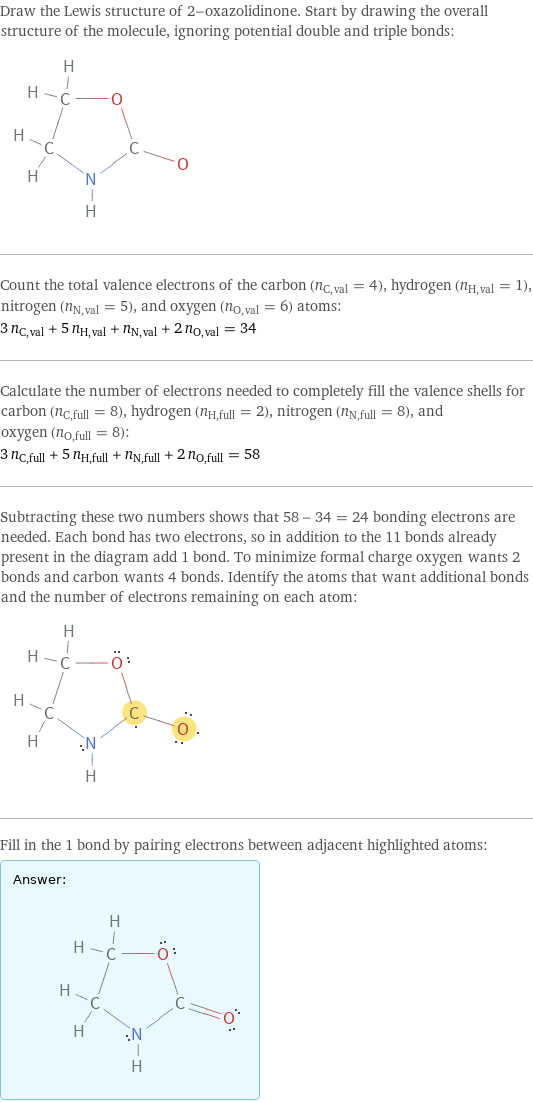
Draw the Lewis structure of 2-oxazolidinone. Start by drawing the overall structure of the molecule, ignoring potential double and triple bonds: Count the total valence electrons of the carbon (n_C, val = 4), hydrogen (n_H, val = 1), nitrogen (n_N, val = 5), and oxygen (n_O, val = 6) atoms: 3 n_C, val + 5 n_H, val + n_N, val + 2 n_O, val = 34 Calculate the number of electrons needed to completely fill the valence shells for carbon (n_C, full = 8), hydrogen (n_H, full = 2), nitrogen (n_N, full = 8), and oxygen (n_O, full = 8): 3 n_C, full + 5 n_H, full + n_N, full + 2 n_O, full = 58 Subtracting these two numbers shows that 58 - 34 = 24 bonding electrons are needed. Each bond has two electrons, so in addition to the 11 bonds already present in the diagram add 1 bond. To minimize formal charge oxygen wants 2 bonds and carbon wants 4 bonds. Identify the atoms that want additional bonds and the number of electrons remaining on each atom: Fill in the 1 bond by pairing electrons between adjacent highlighted atoms: Answer: | |
3D structure
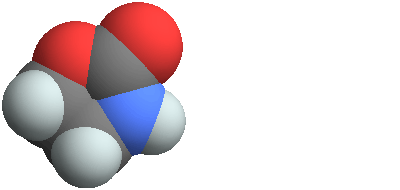
3D structure
Basic properties
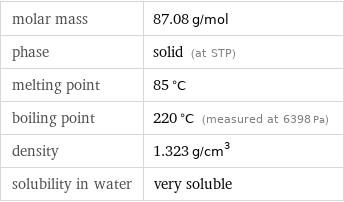
molar mass | 87.08 g/mol phase | solid (at STP) melting point | 85 °C boiling point | 220 °C (measured at 6398 Pa) density | 1.323 g/cm^3 solubility in water | very soluble
Units

Solid properties (at STP)
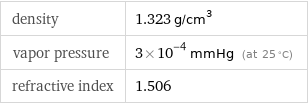
density | 1.323 g/cm^3 vapor pressure | 3×10^-4 mmHg (at 25 °C) refractive index | 1.506
Units

Thermodynamic properties
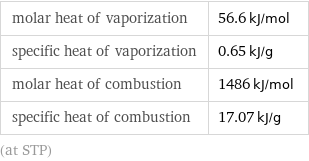
molar heat of vaporization | 56.6 kJ/mol specific heat of vaporization | 0.65 kJ/g molar heat of combustion | 1486 kJ/mol specific heat of combustion | 17.07 kJ/g (at STP)
Chemical identifiers
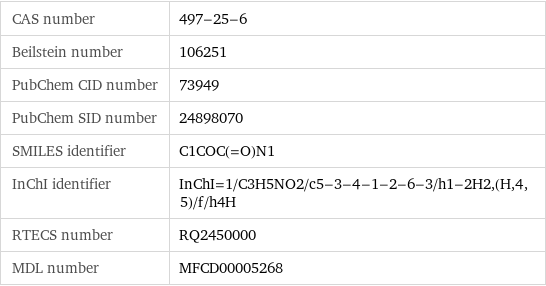
CAS number | 497-25-6 Beilstein number | 106251 PubChem CID number | 73949 PubChem SID number | 24898070 SMILES identifier | C1COC(=O)N1 InChI identifier | InChI=1/C3H5NO2/c5-3-4-1-2-6-3/h1-2H2, (H, 4, 5)/f/h4H RTECS number | RQ2450000 MDL number | MFCD00005268
NFPA label

NFPA label
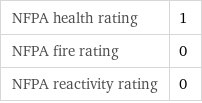
NFPA health rating | 1 NFPA fire rating | 0 NFPA reactivity rating | 0
Safety properties

flash point | 166 °C
Toxicity properties

RTECS classes | tumorigen